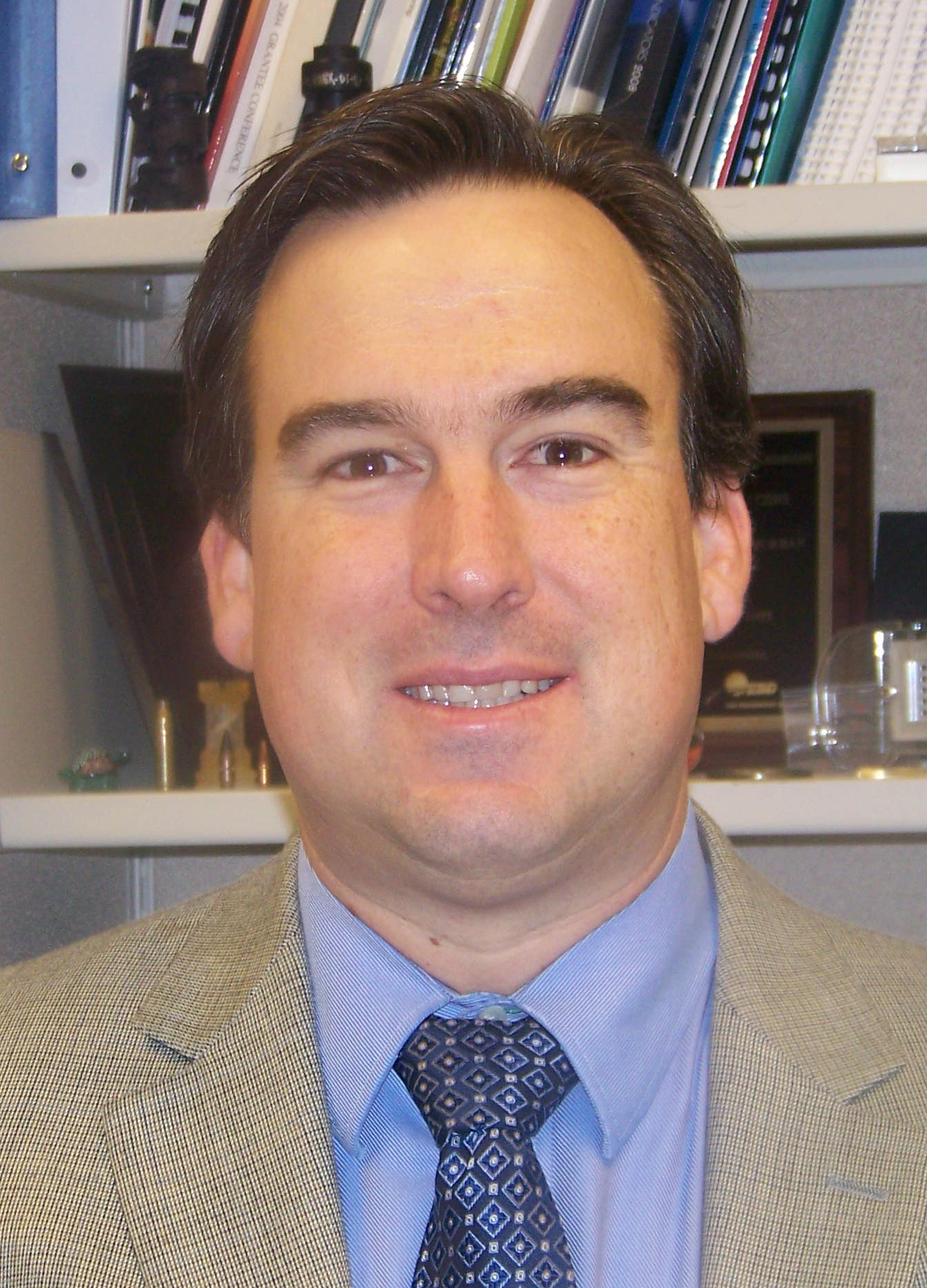Steven H. McKnight named vice president for National Capital Region

Steven H. McKnight, division director for Civil, Mechanical, and Manufacturing Innovation within the Directorate for Engineering at the National Science Foundation, has been named vice president for the National Capital Region at Virginia Tech effective March 1.
In his new position, McKnight will continue to develop and oversee strategic initiatives for Virginia Tech in the National Capital Region, in addition to coordinating services and program initiatives for the university’s seven sites in the region.
McKnight will bring significant leadership and research experience from his current position at the National Science Foundation and from previous roles with the United States Army Research Laboratory.
With this appointment, he also joins the faculty of the Department of Engineering Science and Mechanics in Virginia Tech’s College of Engineering as a tenured professor.
“Steve McKnight brings a wealth of respected scholarship and research, in addition to a visionary and collaborative leadership style that will benefit our efforts in the national capital region greatly,” said Senior Vice President and Provost Mark McNamee.
“He brings perspective, professional networks, and experience that will serve the division, our colleges, and Virginia Tech as a whole. He has demonstrated sophisticated knowledge of educational and research opportunities for us in the national capital region, and is joining a passionate and accomplished team of administrators, faculty, and staff. I look forward to working with him to further enhance the strategic goals of the division and the university.”
“I am honored to return to my alma mater as vice president for the National Capital Region,” said McKnight. “It is a remarkable and timely opportunity. Virginia Tech’s current activities in the area are impressive. I look forward to working with Virginia Tech faculty, staff, and administrators to expand our research, outreach, and teaching in Northern Virginia and to become reacquainted with colleagues in Blacksburg.”
McKnight has served as the division director for Civil, Mechanical, and Manufacturing Innovation within the Directorate for Engineering at the NSF since 2009, and is noted for successfully promoting innovative interdisciplinary research collaborations and interagency partnerships.
Prior to joining the NSF, he spent 13 years at the United States Army Research Laboratory, progressing through a number of leadership positions, from a team leader in the Polymers Research Branch to ultimately serving as chief of the Materials Division.
McKnight holds professional service roles on a number of government committees, serving as NSF’s primary or alternative reprentative on many Office of Science and Technology Policy committees and subcommitees that include the National Science and Technology Council’s (NSTC) Committee on Technology (COT), the NSTC COT Subcomitte on Advanced Manufacturing, and the NSTC Committee on Homeland and National Security.
His personal research interests focus on advanced polymer composite materials and polymer adhesion science, and he applied his research on systems ranging from composite structural armor to multi-component, high-performance military coating systems.
He serves as on the editorial advisory board and as a peer reviewer for the Journal of Thermoplastic Composites, a mentor for the NSF AAAS Fellowship Program, and advised several ARL post-doctoral fellows while at ARL.
He has been honored with the NSF Director’s Award for Collaborative Integration, the University of Delaware College of Engineering Distinguished Alumni Award, and has twice received Army Research and Development Achievement Awards.
McKnight received a Bachelor of Science degree in materials engineering from Virginia Tech, and a Ph.D. in materials science and engineering from the University of Delaware.
Virginia Tech has fostered a growing partnership with the greater metropolitan Washington, D.C., community since 1969. Today, the university’s presence in the National Capital Region includes graduate programs and research centers in Alexandria, Arlington, Falls Church, Leesburg, Manassas, and Middleburg. In addition to supporting the university’s teaching and research mission, Virginia Tech’s National Capital Region has established collaborations with local and federal agencies, businesses, and other institutions of higher education. Virginia Tech, the most comprehensive university in Virginia, is dedicated to quality, innovation, and results to the commonwealth, the nation, and the world.
Dedicated to its motto, Ut Prosim (That I May Serve), Virginia Tech takes a hands-on, engaging approach to education, preparing scholars to be leaders in their fields and communities. As the commonwealth’s most comprehensive university and its leading research institution, Virginia Tech offers 240 undergraduate and graduate degree programs to more than 31,000 students and manages a research portfolio of $513 million. The university fulfills its land-grant mission of transforming knowledge to practice through technological leadership and by fueling economic growth and job creation locally, regionally, and across Virginia.




